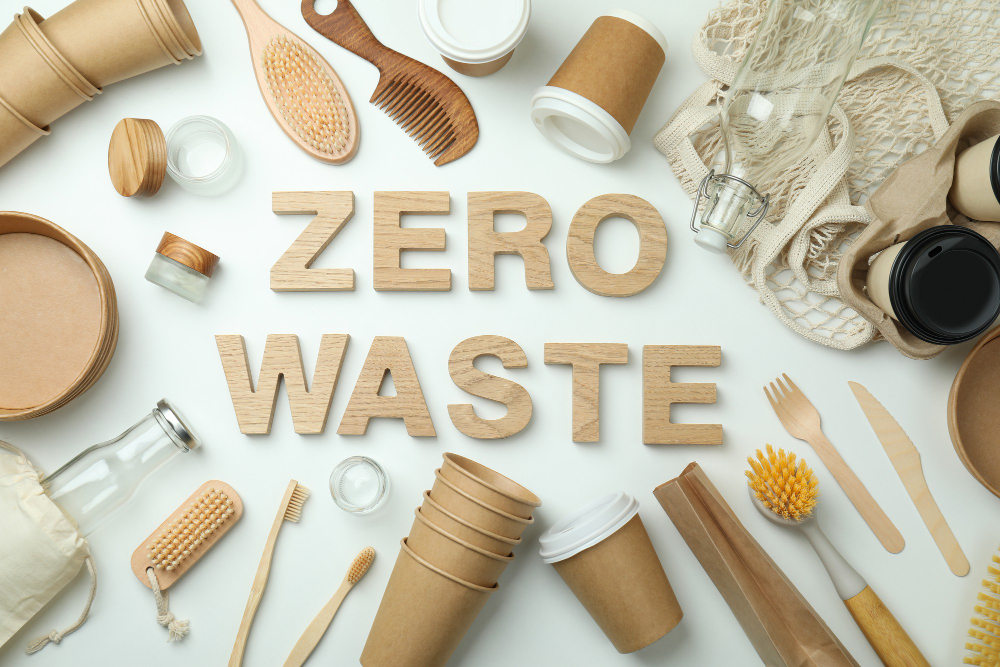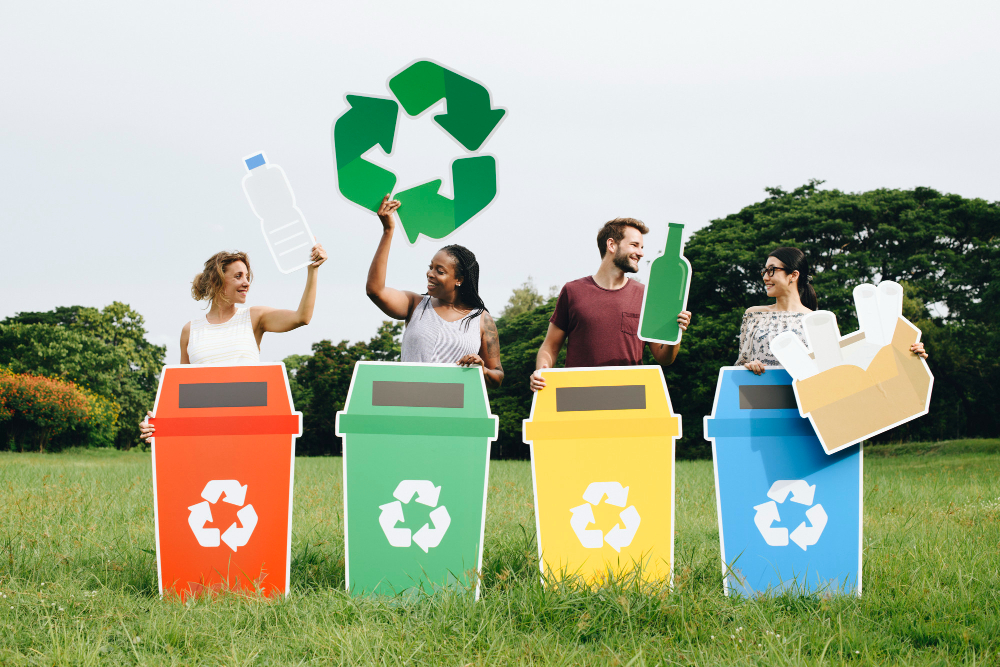Last updated on
Here are the top six facts you need to know about recycling. Read on!
You don’t have to be an environmental activist to know that recycling is an important part of preserving vital natural resources and helping combat climate change.
But do you know what kind of materials are recyclable, the amount of energy it takes to create recycled products as compared with virgin products, or how things like food waste can be reused?
The possibilities for reuse and responsible disposal of items we no longer need go far beyond recycling bin-ready materials – read on for 6 facts about how you can better integrate more sustainable habits into your life.
The Benefits Of Recycling

In today’s environmentally-aware world, it can be easy to feel overwhelmed by the amount of waste we produce. However, by taking simple steps like recycling our trash in recycle waste bins, we can make a significant difference to our environment.
Recycling helps reduce raw material consumption, conserve energy and natural resources, and prevent pollution that would have otherwise been released into the atmosphere – all while creating new jobs in the process.
By investing in waste bins and putting an effort into the recycling lifestyle, we’ll soon begin to see a reduction in our overall environmental impact. Now more than ever is the time to recycle – let’s make sure our future generations are left with as much of this planet as possible!
Understanding the Recycling Process

If you’re like us, you want to reduce your carbon footprint and do your part to help the environment. By understanding the recycling process, from bin to finished product, we can empower ourselves to make sustainable decisions. In most communities, once recycling is placed into the designated bin it’s taken away for sorting.
At a materials recovery facility (MRF) recyclable materials are separated using specialized machinery such as conveyor belts, screens, and optical scanners. Workers then manually sort materials that cannot be identified by scanning or sorting machines.
The recyclables are baled in large cubes and sent off to companies that turn them into new materials, sometimes with components made completely out of recycled materials! The power of recycling is literally in our hands – if we each contribute our own effort in separating our waste correctly it has the potential to have a major positive impact on our planet!
When to Recycle
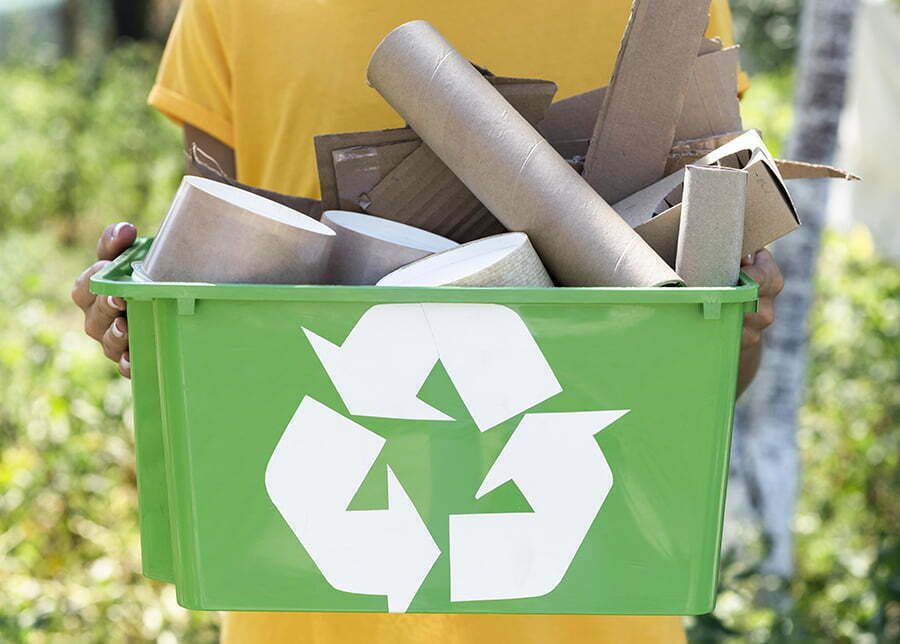
Recycling is an important part of protecting our environment, but it can be confusing to know when and where to recycle certain materials.
One great rule of thumb is that metal, and paper products such as cardboard and paper packaging, plastic containers, and glass bottles are almost always eligible for recycling.
However, you should also double-check with your local facility since regulations vary depending on location. On the other hand, wood trimmings or untreated wood products cannot be recycled.
Anything that’s treated with paint or stains would have to be disposed of in landfills or special sites. Also, keep in mind that syringes or medical waste are never eligible for recycling – these items need to be handled separately and safely according to government guidelines. Follow the above tips and you’ll be well on your way to becoming a pro recycler!
What Happens When We Don’t Recycle
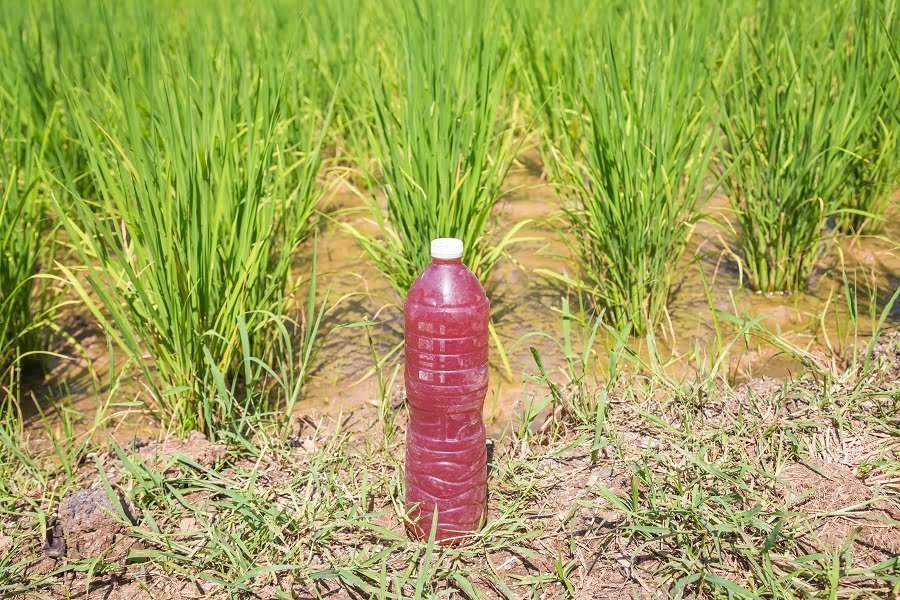
Recycling is one of the most important sustainability practices; by making conscious decisions about how and what we dispose of, we’re keeping materials in use for as long as possible and creating less unintentional waste.
But if it’s not done the right way, these efforts can actually contribute to more pollution. What happens when we don’t recycle properly?
Contamination rates increase, leading to valuable recyclables being turned into wasted landfill space, lost resources, costly contamination fees, and higher emissions as a result of extra production needs.
Yes, even something that is better than throwing away trash directly can have unintended consequences. So take the time to be informed of your area’s recycling requirements—it takes only a few minutes but could have profound impacts on our collective well-being in the long run.
How to Encourage Others to Recycle
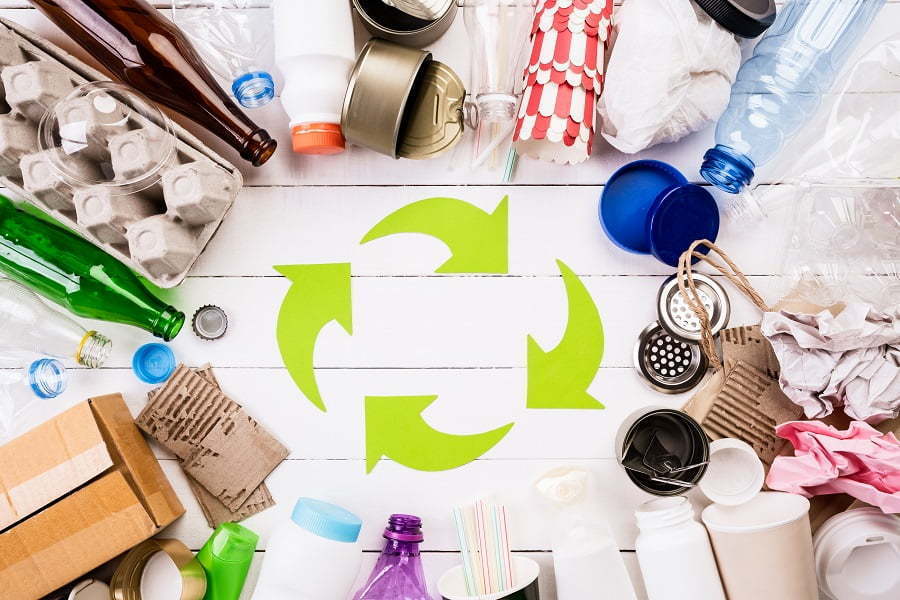
We all know that recycling is important to reducing our environmental footprint, yet it can still seem like a difficult or cumbersome task. But there are several creative ways to make it easier and more enjoyable to participate in group recycling efforts in your community.
From organizing a beach cleanup or hosting an educational forum that includes information on the benefits of recycling, communication is key in creating enthusiasm among those who care about environmental stewardship.
Offering incentives like coupons for participating in a clean-up day can give people more motivation to take part. It’s all about engaging with others — simply talking with friends and family about the importance of recycling can be enough of a catalyst for them to become proactive participants in developing sustainable living solutions for their community!
Resources for More Information
If you’re looking to learn more about recycling programs and initiatives, there are a number of helpful resources available. Visiting websites such as RecycleMoreUSA.org and Earth911.com can provide valuable information about local recycling rules and restrictions, current initiatives in your area, and in some cases – even an interactive tool for locating nearby recycling centers.
Libraries offer books and magazines on environmental conservation, while online discussion forums may contain knowledge shared by industry professionals or everyday people interested in eco-friendly practices.
Don’t forget to ask around too – friends, family, neighbors, and colleagues may have stories or personal experiences they’d be willing to share with you. Ecofriendly research is now easier than ever with an abundance of online data at our fingertips!
In conclusion, recycling is essential to conserving our resources and protecting the world for future generations. Not only does it reduce waste, but recycling can also provide materials for new products and create jobs in the process.
By understanding the different types of materials that can be recycled and where to take them, we can all do our part to help make sure everything ends up back in its rightful place. Learning what happens when we don’t recycle and encouraging others to join us in making a difference will further amplify our efforts.
Lastly, with numerous resources available, everyone should have no problem finding more information on how to get involved with their local recycling initiatives. Together, we can all work together in making sure that our earth continues to thrive.
Related reading:
Table of Contents

